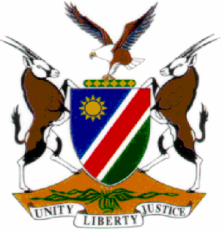
REPUBLIC OF NAMIBIA
NOT REPORTABLE
CASE NO.: CC 02/2009
IN THE HIGH COURT OF NAMIBIA
In the matter between:
FANUEL FESTUS SHIPANGA FIRST APPLICANT
PAULUS KAMATI SECOND APPLICANT
and
THE STATE RESPONDENT
CORAM: USIKU, AJ
Heard on: 01 June 2011; 03 June 2011
Delivered on: 20 June 2011
JUDGMENT: APPLICATION FOR LEAVE TO APPEAL
USIKU, AJ: [1] On the 25 March 2011 the two applicants were convicted by this Court on counts of murder, robbery with aggravating circumstances, kidnapping, unlawful possession of fire-arms and unlawful possession of ammunitions.
[2] The applicants each filed an application for leave to appeal which were filed on the 27 March 2011 with the Registrar, setting out their grounds of appeal against both conviction as well as sentences imposed.
[3] The applicants also filed heads of arguments in support of their aplication for leave to appeal against both conviction and sentence.
[4] Mr Namandje and Mr Kwala who had appeared for the applicants during the trial also argued the applications on behalf of the applicants, whilst Ms Ndlovu appeared for the respondent.
[5] The two applicants in their notices of appeal have raised several issues where the Court, in their view, erred and misdirected itself regarding conviction and sentence which are summarized in the applicants’ main heads of arguments.
[6] On the evidence the Court was convinced beyond reasonable doubt that the two applicants had acted with a direct intent and therefore, were found guilty of murder.
[7] The two applicants acted with common purpose, and all the elements of the crime of murder had been proven beyond reasonable doubt. The reason for the murder was to rob the deceased and his wife, and the applicants did infact, rob the deceased and his wife, of their properties, whereafter they drove away with the deceased’s wife against her will. They were armed and had no licence for the fire-arms.
[8] The two applicants’ versions regarding the events were found to be false and as such were rejected.
[9] After due consideration was given to the evidence as a whole, the Court came to the conclusion that the applicants’ versions were not only improbable, but beyond reasonable doubt false. In reaching such a conclusion regard was had to all the evidence presented before the Court.
[10] It is a well-established principle that a Court of Appeal will not lightly interfere with the sentence imposed by the trial court and will only do so in circumstances where the trial court had misdirected itself on the law or on the facts; has exercised its discretion capriciously or upon a wrong principle, or where the sentence is unreasonable and induces a sense of shock.
[11] In sentencing the Court specifically stated that it had taken into account each applicants’ circumstances, the seriousness of the crimes committed as well as the prevalence of violent crimes. Indeed the applicants conceded that the offences with which they were convicted were of a very serious nature.
[12] Long terms of imprisonment were inevitable and to my mind the Court did not misdirect itself on the facts or on the law in sentencing and with respect, the sentences imposed does not induce a sense of shock, if regard is had to the particular circumstances of this case.
[13] With an application for leave to appeal, the test is that the applicant(s) must convince the Court that, were leave to be granted, there are reasonable prospects of success on appeal. See R v Ngumbane and Others 1945 AD 185 – 7, also see S v Nowaseb 2007 (2) NR 640 (HC). In essence, the question is whether there are reasonable prospects that a Court of Appeal will have a different view and that the appeal may succeed. In his or her assessment, the trial judge has to consider questions of facts as well as the law and has to disregard the fact that he or she had no reasonable doubt as to the guilt of the accused when convicting.
[14] In my assessment of the questions raised by the applicants as set out in their respective grounds of appeal, and the Court’s application of the law to the facts on this case, I am convinced that there is no reasonable prospect of success that the Supreme Court will come to a different conclusion regarding conviction and sentence.
[15] In the result, applicants’ application for leave to appeal against conviction and sentence is dismissed.
____________
USIKU, AJ
ON BEHALF OF THE 1ST APPLICANT: MR NAMANDJE
2ND APPLICANT: MR KWALA
Instructed by: DIRECTORATE OF LEGAL AID
ON BEHALF OF THE RESPONDENT: MS NDLOVU
Instructed by: OFFICE OF THE PROSECUTOR-GENERAL